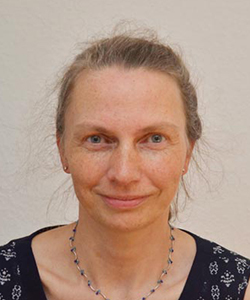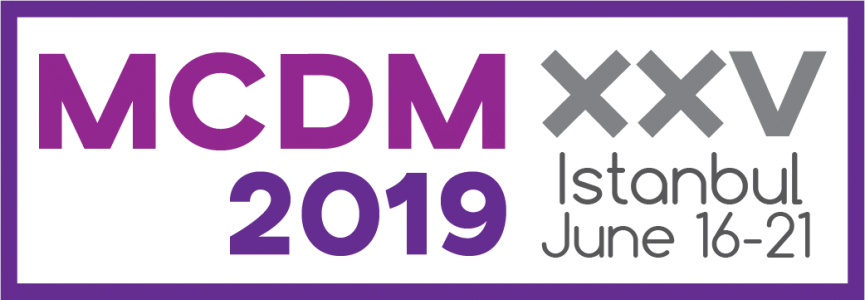
Pınar Keskinocak
Georgia Tech, USA
Quantitative models for decision-support in healthcare applications
Health systems focus on broad set of activities including prevention, screening, diagnosis, and treatment. Most health systems face multiple objectives and limited resources while striving to provide high quality care and promote health and well-being. Data-driven quantitative models, embedded into decision-support systems, have a significant potential for improving patient and population outcomes, efficiency, and effectiveness in healthcare. In this presentation, we will discuss a few applications from organ transplant, vaccination, screening, and workforce allocation decisions.

Kathrin Klamroth
University of Wuppertal, Germany
Multi-Objective Combinatorial Optimization – Beyond the Bi-objective Case
Multi-objective combinatorial optimization (MOCO) is a quickly growing field that is highly relevant for a multitude of application areas and at the same time highly challenging due to its inherent complexity. Typical examples of MOCO problems include multi-objective knapsack and assignment problems, the multi-objective TSP, and network problems like multi-objective minimum spanning tree, shortest path, and minimum cost flow problems.
Starting from a review of recent developments in the field of MOCO, we will analyze the main drivers of the complexity of MOCO problems and identify cases where MOCO problems are actually easy. We discuss general solution concepts such as generic scalarization based algorithms, branch and bound methods, and upper and lower bound sets. This leads to the question of concisely describing the search region and efficiently updating intersections of polyhedral cones in higher dimensions.

Tuomas Sandholm
Carnegie Mellon, USA
New Results for Solving Imperfect-Information Games
Most real-world settings are imperfect-information games. They present challenges beyond those in perfect-information games. In 2017, our AILibratus beat top humans in the main benchmark, heads-up no-limit Texas hold’em. In this talk, I will discuss some of our more recent work on imperfect-information games. Topics include a unified framework for abstracting games with bounds on solution quality [Kroer & Sandholm,NeurIPS-18], a sound depth-limited search framework [Brown et al.,NeurIPS-18], the fastest equilibrium-finding algorithms [Brown &Sandholm, AAAI-19], deep learning as an alternative to abstraction [Brownet al., Deep RL Workshop-18], a general framework for online convex optimization for sequential decision processes and extensive-form games[Farina et al., AAAI-19], the first scalable algorithm for trembling-hand equilibrium refinements [Farina et al., NeurIPS-18], and trembling-hand refinement of Stackelberg equilibria [Farina et al.,IJCAI-18; Marchesi et al. AAAI-19].

Luis Vargas
Voting with Intensity of Preferences
In this paper we develop a method based on the idea of pairwise voting to rank projects or candidates and incorporate in the ranking process how strongly the referees/voters feel about the comparisons they make. Voting is a modified form of ranking and all the votes are equally important. However, there are situations like voting in which the votes are not just ordinal, but each voter expresses an intensity of preference for the different candidates, e.g., ranking projects for funding. We show that our method yields the same results as ordinal voting in large populations when the intensity of preferences becomes extreme. Voting with intensity of preferences does not violate democracy but soften the stand of voters and allows for consideration of the diversity of issues involved in voting.
